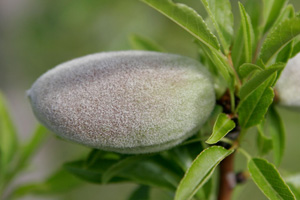What Are Almonds? Are They Nuts?
What Are Almonds?

I didn’t even know that there was a reason to ask, “What are almonds?” I have always been content with my little nuts. Let’s keep our minds out of the gutter.
I wanted to know the origins of almonds and I found out they are not nuts. Actually many nuts we think are nuts are actually seeds. A nut is a fruit with a hard shell that contains a seed that does not open to release the seed.
A chestnut or hazelnut is a true nut. The almond seed is the seed of the drupe fruit of the almond tree, and the almond tree is native to the Middle East and South Asia. The drupe of the almond tree consists of a outer hull, a hard shell, and the almond seed.
The drupe is shelled to remove the husk and shell, leaving the almond seed. The above definition is the botanical definition of nut, but the culinary definition is less restrictive and applies to any oil kernel found within a shell.
Almond Origins
The Middle East, Northern India, and Northern Tibet was home to the ancestor of the modern almond, the wild almond tree. It was later spread spread into Northern Africa and Southern Europe.
Wild almonds are bitter and contain glycoside amygdalin which turns into cyanide when chewed. The levels of cyanide in wild almonds can be deadly.
Wild almond trees were eventually domesticated so their almonds could be eaten, and domesticated almonds appear between 3000-2000 B.C. The domestication of the wild bitter almonds caused the absence of glycoside amygdalin and resulted to the sweet almonds we now eat.
Almond Production
Almonds are produced worldwide and the United States produces the the most almonds worldwide, producing about one-third of the world’s almonds. Almond production in the United States in concentrated in California. Spain, Iran, Italy, Morocco, and Syria are the top producers of almonds worldwide behind the United States.
Almond Benefits
Almond Nutrition
Benefits of Soaking Almonds
Tags: what are almonds






